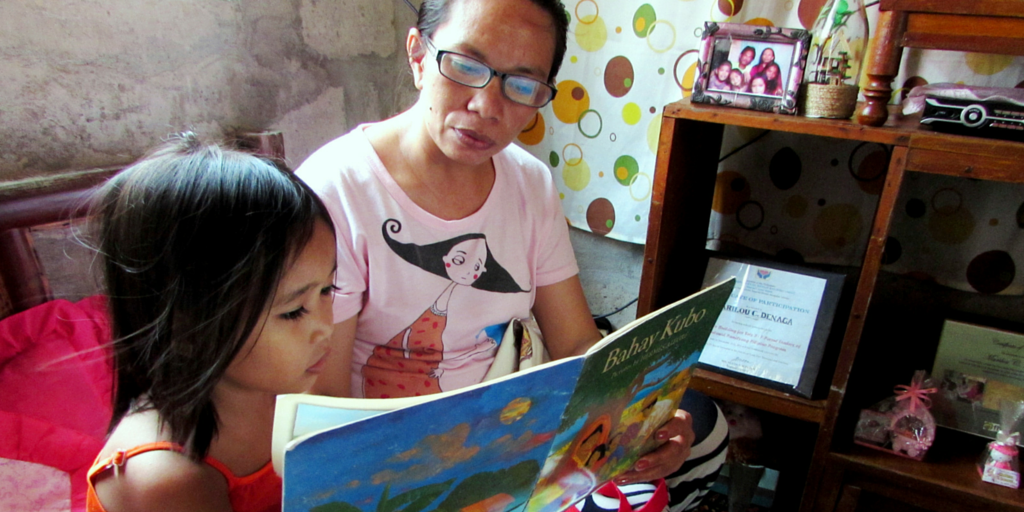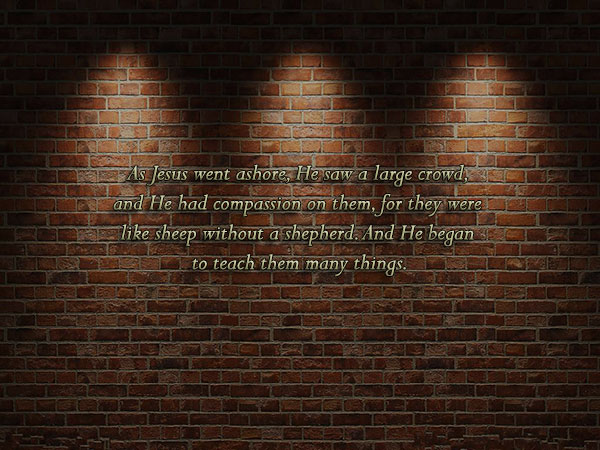
Parents should talk to their kids about sex and sexuality long before adolescence.
I was behind and I didn’t even know it. Despite considering myself a progressive, open parent, I took our 3-year-old son to his annual doctor’s checkup only to realize I had already missed an important opportunity to educate him. After asking my son to disrobe, his pediatrician said, “I’m going to look at your private parts, but it’s okay because I’m your doctor and your mommy and daddy are here.” My son barely paid attention, but I realized that somewhere between baby proofing and the ABCs, I had forgotten to teach my son about who is allowed to look at his privates.
No rational parent looks forward to the idea of speaking to her young child about sexuality, but no rational parent looks forward to getting her child to brush his teeth or get his shoes on in a hurry, either. But these things have to get done, because this is how you raise a human. Teaching a child about dental health and proper footwear, however, are simpler tasks than teaching a child to become a sexually healthy and mature adult.
The fact of the matter is that parents need to get started sooner than they probably are ready for when it comes to teaching their children about sexuality. Fortunately, there is a lot of support and education on how to do so. “Sexuality is more than the first three letters in the word,” says Amy Johnson, a coordinator at Our Whole Lives (OWL), a sexuality education program offered by the Unitarian Universalist Association and the United Church of Christ. From the way people show affection to each other to the way people wear their hair, Johnson says, sexuality is everywhere in our culture.
Many faith communities adapt and use OWL by supplementing the program’s values of relationship, responsibility, and respect with corresponding scripture, liturgy, and song. OWL also covers topics like safety, bodily changes, and external messages children receive about body image and gender in an age-appropriate manner. “We’re not just talking to kindergartners about sex,” Johnson says.
But teaching kids about sex and sexuality isn’t as simple as sending them to class at church; OWL also stresses the role of families. “Our philosophy is that parents should be the primary sexual educators,” Johnson says. Fortunately, there are simple, informal sexways to start teaching young children about healthy sexuality. “The very first sex talk for kids is the correct names for their privates,” says Amy Lang, a Seattle-based educator who runs Birds + Bees + Kids, which provides education to parents and other adults about how to talk to kids about sex, love, and relationships. By avoiding coy nicknames or euphemisms, she says, “We establish a sense of normalcy about kids’ bodies.” Plus, this paves the way to have further conversations about sexuality. (So, unfortunately, there is not “a” sex talk you can be over and done with.)
Having these talks, Lang says, is a means to protect young children. “They need to hear from their trustworthy parents that this is a part of life.” As early as kindergarten, Lang says, children hear rumblings about procreation, which is why “you want to be the expert. Most parents don’t want another kid telling their kid how babies are made.” (I personally prefer to have the body parts talks during bath time—not only is my son a captive audience there in the tub, but also the fact that his parts are right there provides a good jumping off point for discussions.)
Parents ideally will receive support from their children’s doctors in this endeavor as well. I asked my son’s pediatrician, Dr. Benjamin Kornfeld at North Suburban Pediatrics in Evanston, Illinois, about the small speech he gave my son. “Kids don’t have much body shame at the age of three,” he says. “I’m issuing a preamble to orient kids who should be checking out their bodies.” He confirms that it’s better for parents to err on the side of getting ahead on the topic of sexuality rather than waiting for children to ask questions. “We’re deluding ourselves to think that kids aren’t peripherally aware of sexuality among their peer group.”
Mind, body, and spirit
While it might seem cringeworthy to consider how the words penis and vagina fit in with conversations about religious faith, Johnson says that proper anatomy fits in well with church teachings. “It is really powerful to say, ‘God gave you that amazing body—that vulva, that penis.’ ” By doing so, children learn that these aren’t taboo terms, and that we celebrate them “as beautiful and wonderfully made body parts that we can rejoice in.”
The church affirms the point of view that our bodies and what we do with them are a good and happy thing. “For a long time, the body got a bad rap,” says Elizabeth Sweeny Block, assistant professor of Christian ethics at Saint Louis University. “The mind and soul were the most important thing and the body was a temporary vessel and it would be better if we didn’t have to deal with the material world.” However, in Pope Francis’ April 2016 apostolic exhortation Amoris Laetitia (The Joy of Love), she says, there is a new emphasis on the joy of relationships, of pleasure, and how God is embodied in our own bodies. “The body is not something we leave behind,” she says. “It’s sacred and important and should be treated as such.”
By affirming the teachings of the Second Vatican Council, Francis offers a reminder that sexuality is not just about procreation. “There’s an affirmation of sexual desire, of giving and receiving in sexual encounters,” Block says. Francis discusses the good in pleasure as long as it’s integrated into other moments of generous commitment. “Sexual desire is not something we need to look down upon,” she says. This message should soothe any questions Catholic parents may have about whether it’s a conflict of faith to sow the seeds of sexual pleasure.
Tough questions
Like the time my son asked where our dead dog was or the day he asked me why the woman next to us in the ladies’ locker room had “such a big booty,” we’ve all had moments when our children’s curiosity has either stymied or embarrassed us. However, we should view kids’ curiosity about sexuality as being a special part of our bond with them. “We believe it’s our responsibility to give kids accurate and appropriate information, to answer questions in a developmentally appropriate way, to provide a place where their curiosity is a delight, respected and honored and not shut down,” says Johnson. “To create a Christian community that is respectful to kids and give them the information they need in their church with trusted adults is really powerful.”
This is all easier said than done, of course. As adults, especially when considering sexuality through the lens of the church, sex talks and kids bring up big, uncomfortable topics like shame and fear and abuse. But the fact is, that’s more on us as adults. “For a lot of kids—especially those that go to daycare—they see other kids’ private parts all the time,” explains Kornfeld. (Diaper changes and trips to the bathroom make seeing each other’s bodies as normal as washing hands before snack.) “Parents shouldn’t feel worried that they’re creating an environment where kids need to be afraid of every person they don’t know in order to still drive home the message that their bodies are private.”
But what about when kids explore their own bodies? Both Block and I have little boys who are more than happy to show off what their bodies do, sometimes to our chagrin. Her perspective as a parent coincides with hers as an academic theologian: Exploration is a part of the process of being comfortable with and celebrating our bodies. “We do certain things in private—but not because they’re wrong to do.”
Ultimately, sexuality education extends far beyond avoiding teen pregnancy (in whatever form that avoidance takes). “One of the foundational beliefs in Catholicism is that every single human body is created with dignity and worth,” says Block. When we respect our own bodies, we respect others’ as well, which applies to everything from sexual consent to simple respect. “If you’re already establishing family rules that you have to ask first before you kiss, hug, even give friendly touches, your child already understands the idea of consent,” says Lang. “When they get to be older and you’re talking about consent in a sexual relationship, they get what it is. There are so many sex talks that aren’t sex talks that we can have with kids that teach them to have good relations.”
Bigger picture: When we teach children about sexuality, it’s not just about bodies and relationships. Lessons in sexuality that we teach younger children now can help root them when they grow older and need to make their own difficult decisions. For instance, teaching the sanctity of the body now can apply to the topics of physical abuse and drug addiction. Thus, we as parents should aspire to consistently, over time, provide layers of education in order to create a human we can feel comfortable setting free in the world. “Pope Francis says, ‘obsession . . . is not education,’ ” says Block. “We can’t control everything that our children are going to experience. We need to work on their convictions, their goals, their desires, and their dreams. We can’t just lay out a bunch of rules for them and expect them to follow these rules—‘do this and do that’—without saying why.” We’re not just teaching our children about sex—we’re guiding them on how to decide and think.
In order to teach our children, and ultimately trust them to do the right thing, parents must give them the most accurate information they can—without shame or judgment. Even just giving children the proper names of the body, says Kornfeld, “helps them understand that it’s not something that needs to be danced about or talked around, that it just is part of their body. Kids will see an implicit shame if their parents won’t name what they’re talking about.” Above all, he says, children are looking for an honest conversation with their parents, “putting aside any amount of discomfort of stigma or embarrassment.”
Embracing awkwardness
Just because you want to avoid teaching children shame about their bodies and questions doesn’t mean you have to love the process. “Life is uncomfortable, and this is uncomfortable for most parents and kids,” says Lang of Birds + Bees + Kids, especially when it comes to older kids and more advanced talks about sexuality. However, she says, “The best place for your child to be uncomfortable is with you. You can handle it, and your child can handle it too.” Too many parents, she says, use discomfort as an excuse to not talk to their kids. But parents don’t have to pretend that “the talk” isn’t weird. “We can admit it—‘I’m uncomfortable! But I want you to make good decisions.’ ” The conversations can be fun and funny, Lang says. “You can laugh when you talk about sex—it’s ridiculous!”
I took this message to heart recently when my preschooler and I had a teaser conversation about the birds and the bees. I told him a little bit about how he emerged from my body. He shouted, “What?!” and laughed like I just told him the silliest thing ever. He had no follow-up questions; I felt relief that this nugget was planted without apparent trauma.
There are parents out there who worry that being open with children about sexuality sends a message that they’re implicitly approving of any and all sexual behavior—but Lang sees this as a myth. “There’s no evidence that telling kids about sex leads them to having sex,” she says. Young people “can have sex and be well-informed or have sex and not be well-informed,” Lang says. “Any smart parent wants their children to be well-informed.”
This perspective is supported by Margaret Farley in Just Love: A Framework for Christian Sexual Ethics (Bloomsbury Academic). Farley writes, “If a justice ethic is to make any difference at all in the choices that young people make regarding their sexuality, the first step will have to be education about sex and its dangers as well as sexuality and the ways it may not be only harmless but good.”
Sexuality, Lang says, is a fundamental part of being human. “We are sexual like we’re intellectual, physical, emotional, and spiritual. When kids understand that this is another part of life and they can talk openly about it, they’re safer from sexual abuse, and they’re more likely to keep their parents clued into their own questions, actions, and struggles.” Lang compares sexuality education to manners. “We teach our kids manners because we want them to have good social intercourse. Manners are a social lubricant. You wouldn’t let your kid go off into the world without knowing about please and thank you; it’s insane to me that we let kids go into the world without knowing how babies are made.”
In addition to teaching Christian ethics to students, Block tries to pass on these values to her own children. For her, it’s not that difficult because her parents, by her own description, were “fairly progressive and open”—parents who happened to meet when her father was a De La Salle Christian Brother and her mother was a Sister of Charity. “They were in religious life for a time and they always were who they are. I don’t think their time in religious life changed their take,” Block explains. She feels comfortable talking with her own son about bodily functions. “We’re pretty immodest here, but my parents were, too,” she says. When it comes to talking about the more complex parts of sexuality, such as consent, she admits, “Part of me feels ridiculous to be talking about this with a 3-year-old, but when I see him remember things from such a long time ago, I can’t believe the connections he’s able to make.” Just like her parents did with her, she says, “I am planting seeds. I think somewhere they’re taking root.”
These conversations with our children enable them to make decisions when they start to leave the comfort zone of the proverbial bathtub, because children start growing up much sooner than we’d like to think. “Kids need to know the basics of everything by the time they start sixth grade,” advises Lang. “Kids are exposed to so much stuff now. If they make it to sixth grade, and they don’t have a good foundation, they may flounder,” she says. “When kids are well-informed about sexuality and empowered, they feel better about themselves, they can stand their friends showing them pornography on their iPhone or withstand a sexualized conversation with their peers.”
Laying the groundwork now won’t necessarily make the tougher conversations with older kids more pleasant, but we’ll be in the habit of doing so, which is important because sexuality education never ends, even when it starts—or stops—being taught in school. Our Whole Lives offers sexuality education for all stages of life, even for senior citizens, because we can all stand refreshers on how our bodies work and how we should cherish them. (I remember wishing, as I worked on getting pregnant, that my own sex ed had not halted in high school.)
Empowering a child with sexual health and knowledge extends beyond just the child (and future adult) himself. “The hope is that we’re creating sexually healthy people,” says Johnson, “people who can critically think about their own lives and experiences within the concept of relationships, responsibility, and respect. We hope that we’re creating sexually healthy communities—especially faith communities.”
This article also appears in the September 2016 issue of U.S. Catholic (Vol. 81, No. 9, pages 12–16).
Image: Flickr cc via Gerry Thomasen
(from USCatholic)







